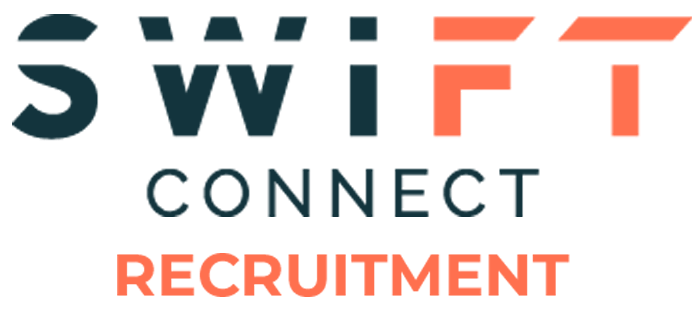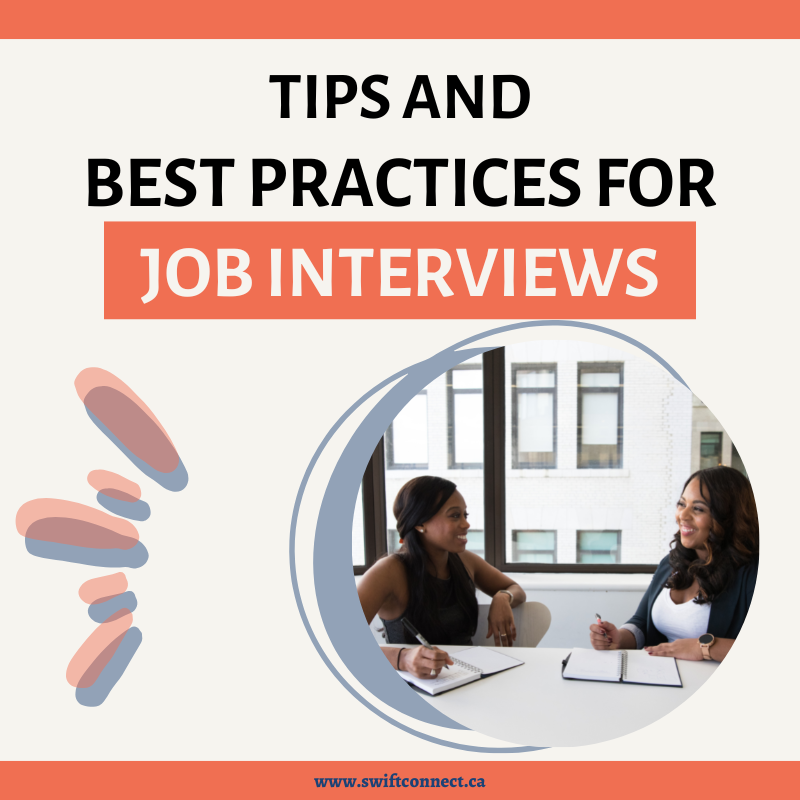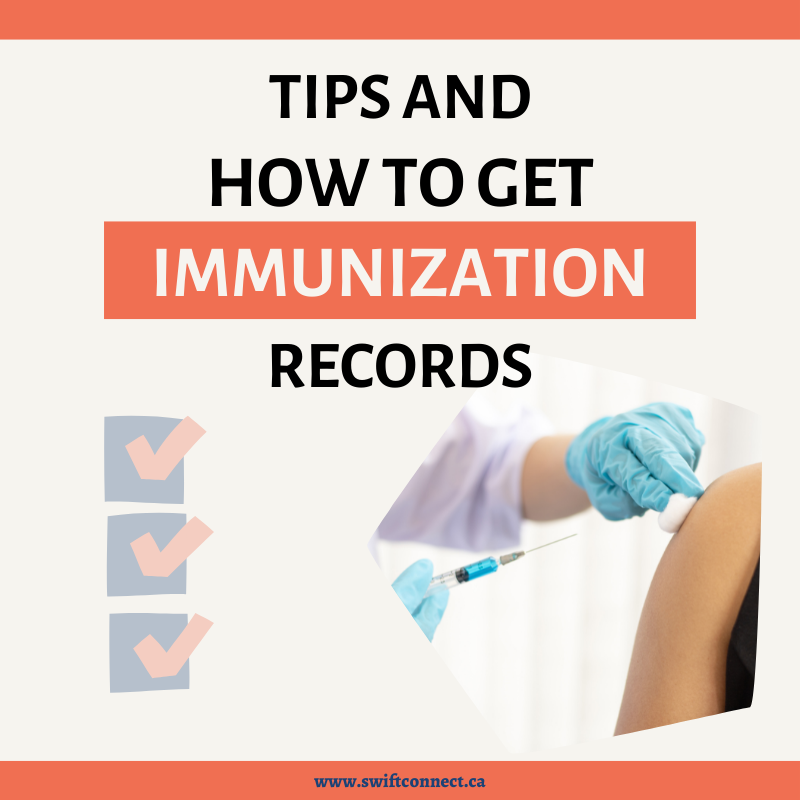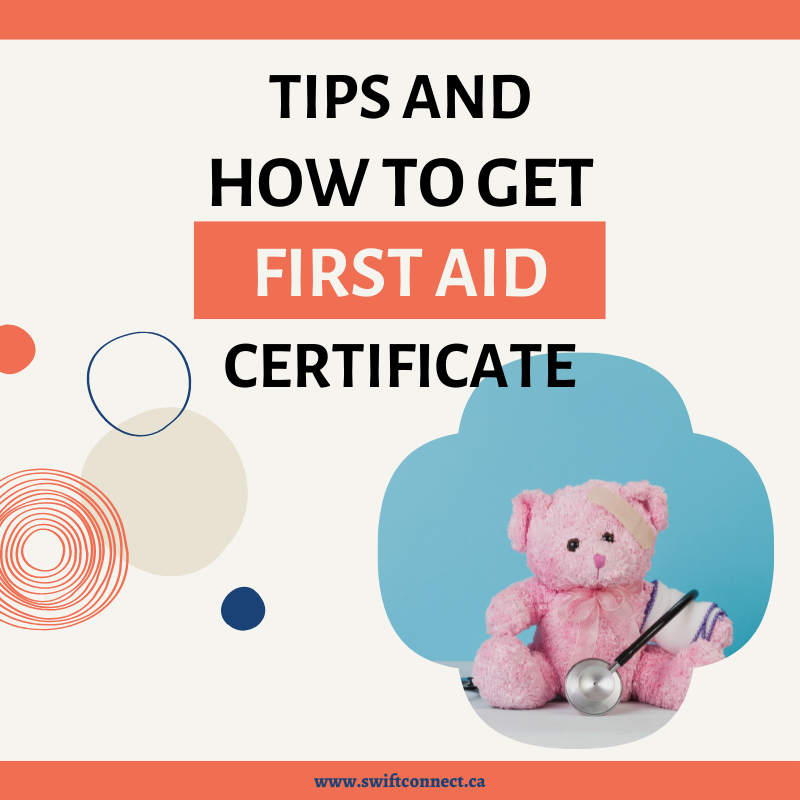Tips and Best Practices for Job Interviews
A job interview can be scary for most job seekers. There is much on the line for an interview, and sometimes it is a lot to handle. This blog post is to help relieve some of that stress to help you improve your attitude and get the job you want!
We will go over tips and best practices such as body language, practice, professionalism, enthusiasm, and following-up tips.
APPEARANCE
Focus your body language on the interviewer, sit up straight, maintain eye contact, and try to keep your hands together. If you tend to talk with your hands, try to practice beforehand in front of a mirror or camera to see how much you use your hands. Lots of movement can be distracting in an interview, try your best to be aware of your hands and keep them at your sides of clasped together on your lap or on the table in front of you. Additionally, if you fidget and your legs move when you’re nervous, try to be aware of that. If your legs are bouncing the entire interview, it can be distracting and although you may sound confident, your body language says otherwise.
If you have long hair, it is best to have it tucked behind your ears or tied in a pony tail. If your hair is down and in front of your face, it will make the employer think that you are hiding and not confident in yourself. Try to be aware of your appearance and not hide behind something. A mask makes things difficult to show your full face. If you are required to wear a mask during an interview, be extra aware of stray hairs as that can hide more of your face.
PRACTICE
Asking friends or family to do a mock interview can help you practice speaking, minimize nerves, and help you become aware of your appearance. Although this may seem silly, it can help relieve stress, boost confidence, and provide an opportunity to prepare answers.
Watch your tone of voice when you speak. The tone of your voice can show your personality and your confidence level quite clearly. Make sure to speak in a strong, confident, and enthusiastic voice in a professional yet friendly manner. This can be difficult at first to grasp as there are many things to consider, that is why it is important to practice speaking in from of someone so they can let you know if you are coming off too strong or too soft.
When you are speaking about your qualifications and experience, make sure to be enthusiastic about the position. Be excited about the opportunity and how you can fill the gaps. At the end of the interview, reiterate how grateful you are for the chance to interview and ask about the next steps. Show that you are interested in working for the company and moving forward with the next step in their hiring process.
PROFESSIONALISM
If your interview is at the workplace, plan your trip before leaving to make sure to arrive on time. The day before the interview, look up how long it will take to get to the office and check our parking / transportation options. Make sure to factor in the possibility of traffic when planning your trip as well. If the interview is online via Zoom, Microsoft Teams, or another platform, make sure to be at your computer with no distractions around you at least 10 minutes before the start time. It is a good idea to set a reminder on your phone about the interview time. Since the interview is online, there is no excuse to be late. Do your best to troubleshoot any connection issues ahead of time to minimize delays in the interview. If it is a large company, it is likely the interviewer has back-to-back interviews. If you cause delays it can shorten your time-frame or mess up their schedule.
When you arrive at the workplace, try to greet the interviewer with a handshake, or wave depending on the Covid restrictions. This also goes for an online interview, it is nice to wave hello and introduce yourself once you join the call. Ask how their day is going or about their weekend plans to break the ice a little. This can help you relax as well as let the interviewer to settle.
Be prepared and research the company beforehand. This can prepare you if they ask you a question such as “What do you know about our company?” As well, it can prepare your expectations on visiting the workplace or speaking with the interviewer online. Make sure that the company is a good fit for you. If there is something you really love about the company, make sure to mention it in the interview. If there is something you want to learn more about or want clarification, you can also find out in the interview.
Throughout the interview, make sure to really listen. This may seem like a silly thing to mention, but some candidates don’t set their full attention to the interviewer. A completely different answer may be given or you may ask the interviewer to repeat the same question multiple times. If you do not understand a question, let them know. Repeating a question can be annoying and gives off the wrong vibe.
FOLLOW-UP
After completing your interview, it is nice to follow-up with the employer regarding your application. You may wish to email or phone the interviewer, depending on how you were communicating with them before the interview. The day after the interview, you can reach out to thank them for the interview. In this correspondence you can say thank you for the opportunity and remind them of your qualifications. As well, if there were any questions or concerns they had for you, you can address them here.
If you have not received any news seven business days after the interview, then you can follow-up about the status of your application. Do not contact them earlier than seven days to allow appropriate time for the employer to evaluate and review the application. This follow-up will remind the employer that you are still interested and enthusiastic about the role.



